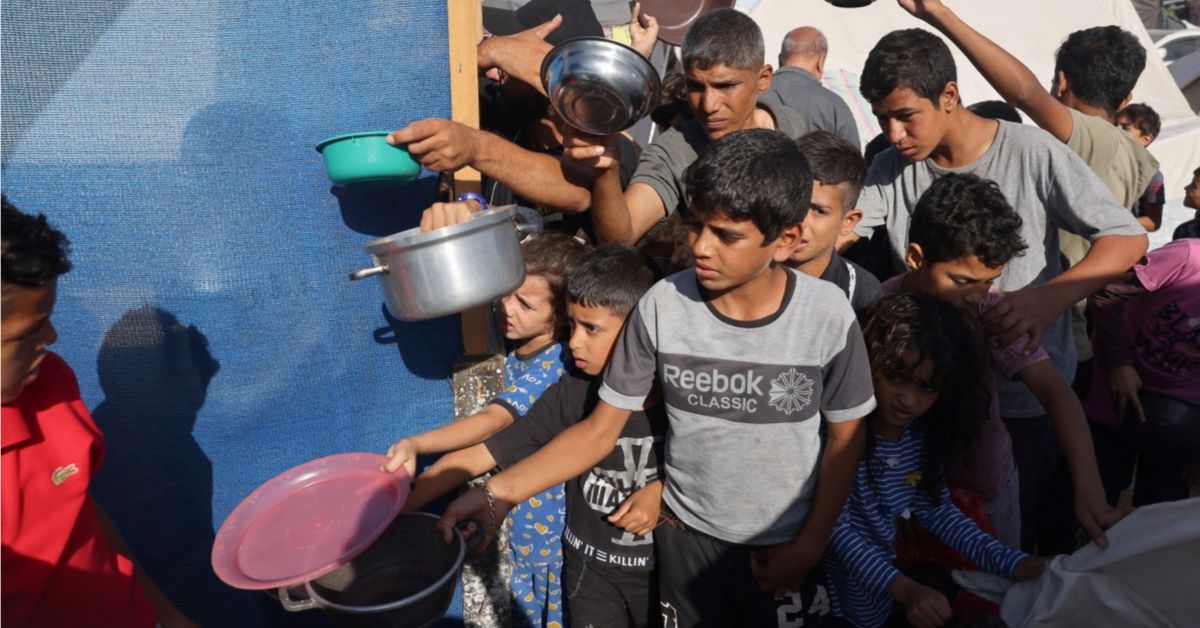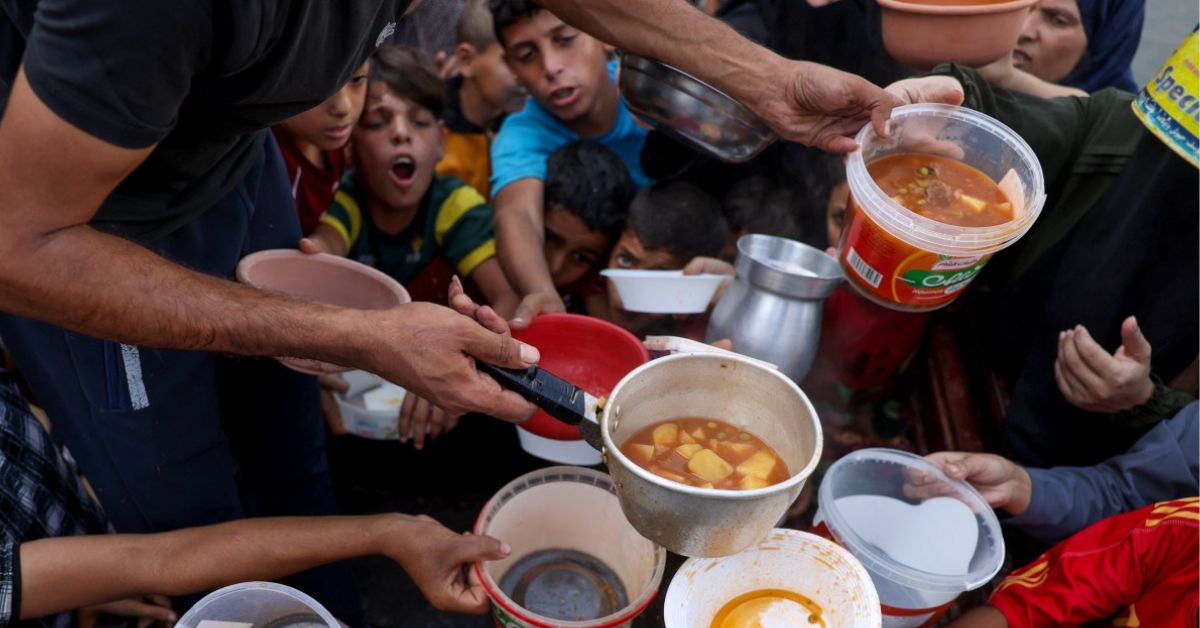GAZA CITY — The humanitarian situation in Gaza has reached a critical juncture amid the ongoing siege following the military escalation on October 7, according to the latest report from the World Food Programme (WFP).
“The escalation of conflict has led to a severe shortage of essentials, including food, healthcare, and clean drinking water,” the report said.
As of October 29, the WFP estimates that the current market stocks of basic food commodities in Gaza may last anywhere from 1 to 23 days.
Also Read Exclusive reports on Gaza-related developments
Wheat flour is of particular concern, with projections indicating it could be depleted within 23 days, and there are more immediate worries for vegetable oil and pulses, which could run out after just three days, it adds.
Sugar and rice stocks are also critically low, expected to last only eight and one day, respectively, the report points out.
At A Glance * Basic food commodities in Gaza may last only 1 to 23 days. * Wheat flour stocks projected to be depleted in 23 days. * Vegetable oil and pulses could run out in just 3 days. * Sugar and rice expected to last only 8 and 1 day(s), respectively. * Daily truck inflow to Gaza has dropped to 3.7, only 1.1% of pre-conflict levels. * Only 84 relief trucks have entered Gaza since the escalation, insufficient for needs. * Four mills shut down, limiting wheat grain processing. * About 60% of shop owners report decreased food stocks; 30% face supply delays. * All 55 bank branches in Gaza have suspended operations, leaving only ATMs with a withdrawal limit of NIS 14,000. * Palestine's GDP is expected to decrease by US$500 million in 2023, a 3% drop from the previous year. * Daily economic loss for Gaza estimated at US$16 million. * West Bank violence and mobility restrictions have led to cut-off of water and food supplies since October 9, 2023. * Gaza's sole power station shutdown on October 11, 2023, causing a blackout. * Agricultural, fisheries, food processing, and distribution sectors at risk of collapse. * Poultry and livestock industries face severe threats to food security. * Telecommunication, WASH, healthcare facilities, and residential buildings destroyed or damaged. * An estimated 1.5 million Palestinians (28% of the population) faced acute food insecurity from May to July 2022. * 1.2 million people in the Gaza Strip and 353,000 in the West Bank require immediate aid. * The international community urged to provide immediate aid and sustainable solutions.
Since the onset of the conflict, the average daily inflow of trucks to Gaza has nosedived to 3.7 trucks, a mere 1.1 percent of the daily inflows prior to the conflict. This drastic reduction has rendered the 84 relief trucks that have entered Gaza since the escalation inadequate to meet the growing needs.
The shutdown of four mills has limited the processing of wheat grain into flour, diminishing the quantities available for consumption. Compounded by energy shortages and physical damage from the conflict, bakeries’ operations are compromised, with the threat of imminent closure looming.
Retail food availability remains alarmingly low, with acute shortages in vegetables, eggs, dairy products, and drinking water. The WFP’s remote rapid survey reveals that about 60 percent of shop owners have reported decreases in food stocks, while 30 percent are experiencing delays in receiving new supplies.
The conflict has also taken a toll on the financial sector, with all 55 branches of the 10 banks operating in Gaza halting their services. This has left only ATMs operational, subject to a withdrawal limit of NIS 14,000 (approximately US$3,500).
The economic repercussions are significant, with Palestine’s GDP expected to decrease by US$500 million in 2023, which would result in a three percent contraction in economic growth compared to the previous year. The daily economic loss for Gaza is estimated at US$16 million due to the suspension of most commercial activities.
“The WFP is vigilantly monitoring the situation, yet the demand for immediate humanitarian aid is evident. The escalating food crisis in Gaza calls for urgent global attention and support,” said the report from the international food assistance body.
The escalating food crisis in Gaza calls for urgent global attention and support.
The World Food Program report
Another WFP report, projecting from November 2023 to April 2024, notes that the West Bank has experienced a marked rise in violence, worsened by stringent mobility restrictions.
Since October 9, 2023, these limitations have cut off all water and food supplies, leading to the depletion of essential stocks and the consequent shutdown of Gaza’s sole power station, plunging the area into darkness on October 11, 2023, the report said.

These barriers to humanitarian access are hindering relief efforts, with the potential for the agricultural, fisheries, food processing, and distribution sectors to face a total breakdown, it added.
The report highlighted that the poultry and livestock industries are particularly vulnerable, posing a severe threat to food security in the Gaza Strip.
The report further pointed out that the conflict has led to the destruction or impairment of numerous telecommunication systems, as well as water, sanitation, hygiene (WASH), healthcare facilities, and residential structures.
According to the Humanitarian Needs Overview (HNO) for 2023, an estimated 1.5 million Palestinians, representing 28 percent of the population, were grappling with acute food insecurity and required immediate aid from May to July 2022. This figure includes 1.2 million individuals in the Gaza Strip and 353,000 in the West Bank, accounting for 53 percent and 11 percent of their respective populations.
The food security situation was already deteriorating prior to the conflict’s intensification in October 2023. The ongoing violence has led to a spike in casualties, forced displacement, and the devastation of vital infrastructure, all amidst a comprehensive blockade of the Gaza Strip.
The report emphasized the critical need to address the escalating food insecurity crisis in Palestine, which has been drastically worsened by the recent surge in hostilities. It calls on the international community to deliver immediate aid and to seek enduring solutions to mitigate the hardships faced by the Palestinian people.









